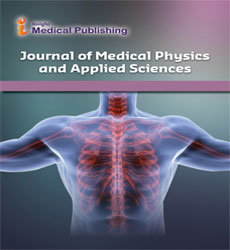Abstract
Assessment of the Knowledge of CT scanner Operators on the Use of Dose Reduction Software Called Automatic Exposure Control (AEC) During a CT scan
Background: Subjective cognitive decline is considered to be a risk for Alzheimer’s disease. However, it can also be associated with non-cognitive variables.
Objectives: This study analyzes the association between Subjective Cognitive Decline (SCD) and variables related to memory, mental health, morbidity, pain, quality of life, loneliness, lifestyle, and social aspects; analyzes predictors of SCD.
Materials and methods: Descriptive and analytical transversal study from January 1 to December 1, 2020, conducted in the radiology and medical imaging services of Cameroon's public and private hospitals with a CT scanner. It was the first study on this topic that was conducted in Cameroon. This study was conducted from a questionnaire distributed to all medical imaging technicians in 10 country hospitals relating to the notions of dose reduction software and patient radiation protection.
Results: 80 questionnaires were distributed and analyzed. The average age of medical imaging technicians was 30 years old. There were 32 women and 48 men. Most of the medical imaging technicians worked in private centers (n=6). 75% of medical imaging technicians had been in practice for more than 5 years. 75% of medical imaging technicians gave the wrong answer regarding the use of dose reduction software. Finally, only a third of the practitioners had received training in patient radiation protection.
Conclusion: The Although the majority of medical imaging technicians declares to take into account the dangers related to ionizing radiation during examinations, a broader dissemination of patient radiation protection training and the use of dose reduction software, particularly during the initial curriculum. Radiology technicians could be one of the solutions to improve the knowledge of hospital practitioners in patient radiation protection. However, the use of ionizing radiation, however, need to know and take into account the potential risks of radio-induced cancer linked to high X-ray doses.
Author(s):
Fotso Kamdem Eddy, Samba Odette Ngano, Abogo Serge ,Tambe Joshua , Mballa Amougou Jean claude , Guegang Emilienne , Zeh Odile Fernande , Nguemgne Célestine , Nwedjiwe Nana Narcisse Fidèle and Fotue Alain Jervé
Abstract | Full-Text | PDF
Share this

Google scholar citation report
Citations : 194
Journal of Medical Physics and Applied Sciences received 194 citations as per google scholar report
Abstracted/Indexed in
- Google Scholar
- China National Knowledge Infrastructure (CNKI)
- Secret Search Engine Labs
Open Access Journals
- Aquaculture & Veterinary Science
- Chemistry & Chemical Sciences
- Clinical Sciences
- Engineering
- General Science
- Genetics & Molecular Biology
- Health Care & Nursing
- Immunology & Microbiology
- Materials Science
- Mathematics & Physics
- Medical Sciences
- Neurology & Psychiatry
- Oncology & Cancer Science
- Pharmaceutical Sciences

